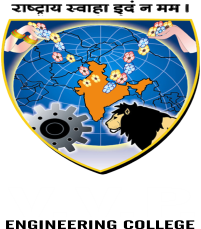Chemistry Lab
The purpose of the laboratory component of the course is several-fold. It reinforces the material you have learned in class and it gives you a chance to apply your knowledge. You will learn some important experimental techniques that are necessary for you to become an effective chemical engineer.
Mechanical Operations Lab
The Mechanical Operations Laboratory is equipped for the study of the various mechanical operations associated with different solids as well as fluid. Experiments mainly deal with size reduction, size separation, clarification, kneading, solid fluid separation, etc. All basic experiments for particle mechanics like Jaw Crusher, Ball Mill, Hammer Mill, Sigma Mixture, Plate and Frame Filter, Cyclone, Cyclone Separator, Batch Sedimentation, Sieve Shaker are available in this laboratory.
Chemical Reaction Engineering Lab
Chemical Reaction Engineering (CRE) is the field that studies the rates and mechanisms of chemical reactions and the design of the reactors in which they take place. A chemical species is said to have reacted when it has lost its chemical identity. This lab is developed to study the kinetic data of reaction and to study the design parameter of chemical reactor.
Mass Transfer Lab
The purpose of this lab is to introduce the undergraduate students with the most important separation equipments in the process industry, and provide a hands on training of the proper operation of these units. This helps in not only understanding the theoretical fundamentals of the subject but also helps to visualize its real world applications in the process industry.
Heat Transfer Operations Lab
Heat Transfer Laboratory deals with the practical related to the understanding of modes of heat transfer. It deals with the performance check and effectiveness of heat exchange equipment.
Petroleum Refining & Petrochemical Technology Lab
Petroleum testing is most commonly used in the petroleum industry, to test product, product components and petroleum by products of crude oil, fuel, natural gas, shale oil, and upstream oil and gas. Other petroleum applications: Instruments exist to test all aspects of petroleum- everything from viscosity, to flash point, ability to reduce friction, and different measurements of physical properties, purity, behavior and stability. Petroleum testing is also used to text other formats of petroleum such as wax based products. Other applications of petroleum testing include food product testing and environmental monitoring of petroleum in soil and water.
Instrumentation and Process Control Lab
The core subject “Process Control and Instrumentation laboratory” provides knowledge on practical performance of different control instruments through experimentation and to apply the knowledge of control theory for understanding the various processes, carried out in the Chemical process industry.
Modelling and Simulation Lab
The objective of the lab is to introduce students to solving process simulation problems using MATLAB Aspen-Plus, DWSIM, CHEMCAD, Excel Solver, GAMS. A basic background in Numerical Methods and Chemical Engineering is expected, though all the key concepts required for the lab will be reviewed during the course of the semester.
The lab focus on MATLAB, which is a powerful language for engineering applications. Starting with basics of MATLAB, we will review key computational techniques relevant to MATLAB functions and use them for simulation and analysis and will cover process simulation using the Aspen-Plus package, which is an industry standard for process simulations. This involves introducing key features of Aspen-Plus package, including property estimation, flow-sheeting, and process design.
Fluid Flow Operations Lab
The goals of the experiments include determination of forces generated when fluid flow takes place over a solid object, applications of the control volume approach, demonstration of the momentum and energy equations, viscosity measurement and engineering correlations.
Lab Technical Staff
Mr. Nayan Vaishnani

Experience: 16.5 years
Mrs. Rita Vachhani

Experience: 17 years
Mr. Vijay Mehta

Experience: 18 years



















